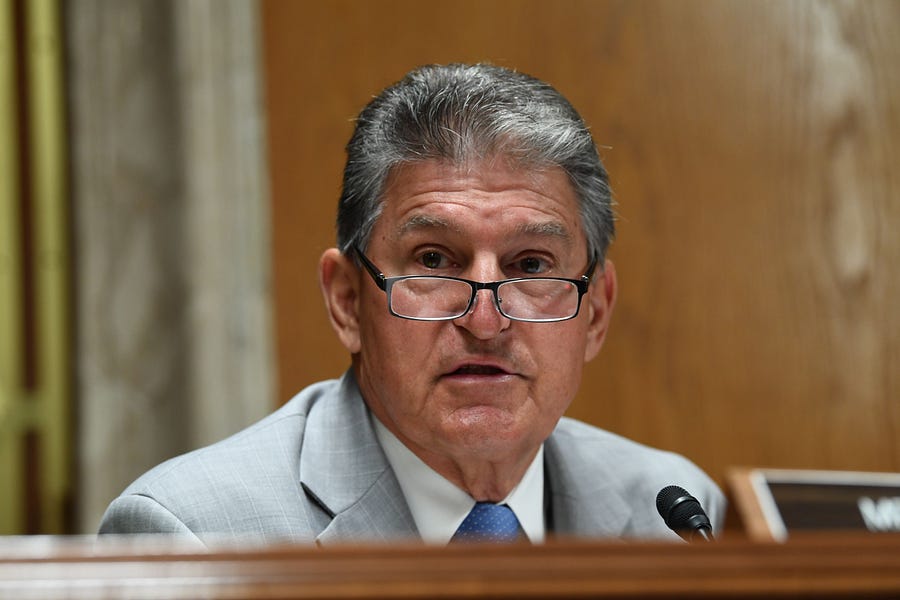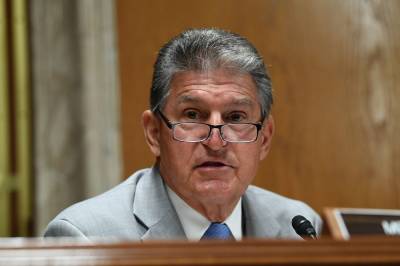Here’s something you probably won’t hear from either the left or the right: West Virginia Sen. Joe Manchin is a much more important and influential Democrat than New York Rep. Alexandria Ocasio-Cortez (or “AOC” for marketing purposes).
Just this week, Manchin did something far more consequential than anything AOC has done in her entire career. Yet everybody is paying more attention to her.
Now, when I say “everybody,” I mean almost nobody, save for the insular world of political journalists, party activists and, well, that’s about it.
AOC, Sen. Bernie Sanders and other leaders of the progressive wing of the Democratic Party have had to explain why the Democrats lost seats in the House and so far only picked up one seat in the Senate in an election that was supposed to sweep in an army of young, very progressive Democrats under the banner of the Green New Deal and Medicare for All.
While that conversation dominated coverage, Manchin announced that he would unilaterally block the progressive agenda in the Senate by not voting for the only maneuver that would make it possible to pass the progressive agenda. He told Bret Baier of Fox News that “whether it be packing the courts or ending the filibuster, I will not vote to do that.”
Given the math of the Senate—no matter who wins the Georgia runoff races—it would be all but impossible to abolish the filibuster without Manchin’s vote. And without abolishing the filibuster, the Green New Deal and Medicare for All are nonstarters.
I think this was a true act of statesmanship on Manchin’s part because I passionately oppose abolishing the filibuster and court-packing. But I also think Manchin’s announcement was good for the Democratic Party and not great for the GOP.
Historically, when one party was seen as too extreme, the other party benefitted. When one party went too far left or right, that left the center up for grabs. And traditionally, that’s where elections have been won.
That’s changed in recent years for a bunch of reasons. Voters have self-sorted into ideologically bubbled communities, and their preferred media sources have tailored their programming to those bubbles. This drives the parties to focus more on turning out their bases than persuading middle-of-the-road voters.
The core argument of the Sanders faction has been: Don’t compromise your principles to win moderate voters; just swamp the system with massive turnout. “Our swing voter is not red-to-blue,” AOC said in 2018. “Our swing voter is ... the non-voter to voter.”
The best way to turn out your side? Demonize the other side. That’s what Republicans and Democrats have done for years. But in 2020, voters broke the cycle. Democrats did so poorly in their House and Senate races in part because many voters didn’t want Joe Biden and the Democrats to have total control of Congress, particularly when the loudest voices on the left were calling for ending the filibuster, court-packing and the Green New Deal, not to mention “defunding the police.” Republicans were only too happy to highlight this rhetoric and cast it as the core view of the entire Democratic Party.
And that’s why Manchin’s declaration was good news not just for the country but for Democrats—and bad news for Republicans.
Manchin helped the Democrats in the Georgia Senate runoffs (which may decide control of the senate) by making it harder for Republicans to scare voters away from Democrats. The GOP wants to turn the Georgia races into an apocalyptic choice between socialism and freedom, and Manchin made that spin harder by essentially taking the Sanders-AOC agenda off the table.
This is how it’s supposed to work. The two-party system functions best when both parties try to compete for voters, not pander to their bases.
AOC talks a lot about the glories of massive voter turnout, but she won her first primary in an extremely liberal district thanks to low voter turnout. It’s not clear to me she understands her own district, never mind the political realities outside Queens. Meanwhile, Manchin’s West Virginia is the fourth-most Republican state in the country—Trump beat Biden by almost 40 percentage points there. And yet Manchin keeps getting reelected. Maybe he knows more about how to compete and win than she does? He certainly knows more about how government is supposed to function.
Photograph by Toni L. Sandys/AFP/Getty Images.







Please note that we at The Dispatch hold ourselves, our work, and our commenters to a higher standard than other places on the internet. We welcome comments that foster genuine debate or discussion—including comments critical of us or our work—but responses that include ad hominem attacks on fellow Dispatch members or are intended to stoke fear and anger may be moderated.
With your membership, you only have the ability to comment on The Morning Dispatch articles. Consider upgrading to join the conversation everywhere.